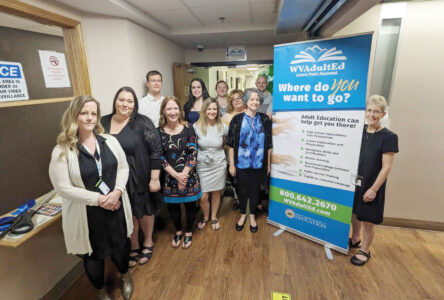Ohio University facing omicron surge
ATHENS, Ohio — Ohio University is working to maintain in-person classes, despite more than 2,000 positive COVID-19 test results among faculty and students since Jan. 1.
Classes resumed Jan. 10, with the school requiring all students to get tested for the virus before attending classes or other on-campus activities. That meant people without symptoms or who otherwise might not have been tested were found to be infected.
“A big jump in that case rate was due to our pre-arrival testing,” said Gillian Ice, special assistant to the university president for public health operations.
The aggressive testing strategy is part of an effort to protect the university and surrounding community by identifying and isolating those who have the virus, she said.
Jack Pepper, administrator for the Athens City-County Health Department, said this week that the resumption of classes at OU explains why the county’s two-week rate of new cases per 100,000 people jumped from 81st out of Ohio’s 88 counties two weeks ago to third as of Thursday.
Ice noted students used the same testing provider before they returned to campus as they did when on campus, so their addresses registered in Athens, even if they hadn’t returned.
“A lot of those cases, the students aren’t actually in Athens County,” she said.
The omicron variant is causing cases to rise outside of the campus community as well, Ice said.
“We have a high rate of transmission in the county from non-OU-affiliate folks, as well as affiliates,” she said. “I think that every place where omicron is taking hold, it is moving very quickly.”
According to the Ohio Department of Health’s online COVID dashboard, Athens County has recorded 3,161 cases since Jan. 1. The university’s numbers would be included in that total.
In the face of the surge, OU is working to keep classes in-person but moving some extracurricular activities online, Ice said. Faculty members have indicated students are wearing masks in class and taking other precautions, she said.
About 90 percent of students on the Athens campus have been vaccinated, Ice said. While that hasn’t prevented all breakthrough infections, “it certainly will keep the impact on the hospitals and the local health care system to a minimum,” she said.
On average, cases have been “more mild than it has been,” Ice said, noting that even with the rise in positive tests, the treatment volume at Campus Care has not increased.
Evan Bevins can be reached at ebevins@newsandsentinel.com.




